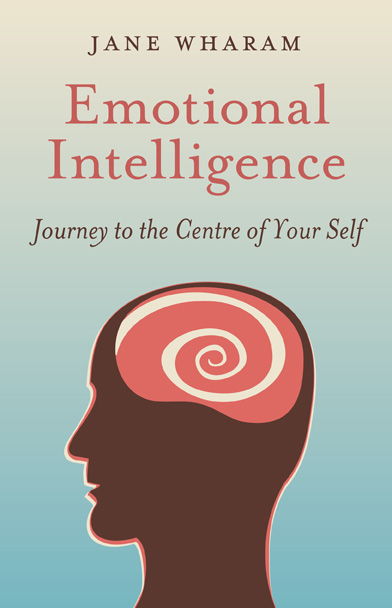Emotional Intelligence
Emotional Intelligence by Jane Wharam helps improve relationships by taking control of emotions.

Emotional Intelligence by Jane Wharam helps improve relationships by taking control of emotions.
Emotional Intelligence by Jane Wharam helps improve relationships by taking control of emotions.
Depression, Emotions, Motivational & inspirational
Having overcome huge emotional traumas, the author has written a lay guide to emotional intelligence using her own, down to earth examples. Approachable style with EQ testing and practical exercises and visualisations to help the reader address the way they think emotionally and live a happier, more authentic and balanced life. Jane Wharam s book, Emotional Intelligence, provides a giant step towards emotional mastery. With it, you can know yourself better, understand how to react in ways that improve the quality of your life, and learn how to build beautiful relationships with wonderful friends. Owen Waters, author of The Shift: The Revolution in Human Consciousness. Jane Wharam lives in Surrey, England and tries to practise what she preaches. Having experienced the gamut of emotions and some extraordinary situations, the author now leads courses in Emotional Intelligence to enable participants to avoid what she herself suffered.
Click on the circles below to see more reviews
Jane Wharam's book, Emotional Intelligence, provides a giant step towards emotional mastery. With it, you can know yourself better, understand how to react in ways that improve the quality of your life, and learn how to build beautiful relationships with wonderful friends. ~ Owen Waters, author of The Shift: The Revolution in Human Consciousness.
'Jane Wharam’s delightful book Emotional Intelligence; Journey to the Centre of Your Self' is one that brings this most important topic back into the realm of the understandable. Daniel Goleman, of course, achieved best seller status with his book back in 1995, which shows us just how much interest there is in the topic. Since his was a long, sometimes ponderous, and often over-cautious academic treatise that probably drove many readers away before finishing the book. Jane's contribution is that she puts the life back in the discussion. Her writing is accessible, lively, and she carries her not inconsiderable weight of learning with the sort of ease we should all aspire to. This is a major benefit to those of us who want to learn how to become more emotionally intelligent and thus more effective in our lives, and our dealings with others. One of the great pleasures of this book is that Jane is always aware of her readers, and engages them though exercises that let us feel what it means to discover our emotional shortcomings, and thus allow us to strategize how we can overcome them. Perhaps the key to this is that we are told, early on, that we have choices around our emotions. Just because we feel something doesn’t mean it has to be that way. We can feel something and then search through our options, which will be much more likely to bring us to a place of understanding. The focus, then, is not just on knowing what we’re feeling (which most of us, on the whole, don’t) but on using our emotions as information, such that we can ask what the best way forward might be. Much of the discussion focuses, appropriately enough, on the words we use to describe our situations to ourselves, and how lazy or habitual word choices can falsify what is actually doing on. Jane gives us practical, straightforward advice about what to watch for and what to do to avoid these traps, so we can be in control of our emotions now, not later on tonight when we’re rethinking a disastrous interaction. This situation, which is called emotional flooding, will be all too familiar to most of us. Something sets us off, and we can’t seem to get the rest of the interaction right from that point on. Knowing about this is the first step in eradicating it, and causes us to create the much happier circumstances we actually desire.' ~ Dr Allan G Hunter, author of The Six Archetypes of Love and Stories We Need to Know as well as two books on writing for self-exploration, Life Passages and The Sanity Manual.